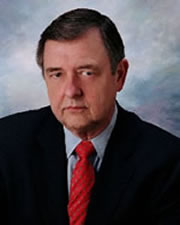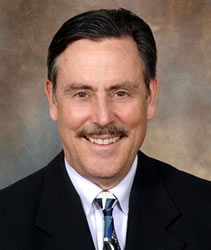Book Review - Fundamentals Of Analytical Toxicology
As originally published in the International Journal of Toxicology, 27:397-398, 2008
By: Dr. John Budny
Tel: (818) 706-2410
Email Dr. Budny
Website: www.medtoxexpert.com.
Book Review
Fundamentals of Analytical Toxicology
By Robert J. Flanagan, Andrew Taylor, Ian D. Watson, and Robin Whelpton
Publisher: John Wiley & Sons, Ltd. 2007.
ISBN: 978-0-470-31935-2. 505 pages.
The book consists of 505 pages of text, which is divided among 17 chapters and an index. There are also 15 pages of important introductory material covering such topics as Preface; Health and Safety; Nomenclature, Symbols, and Conventions; Amount Concentration and Mass Concentration; Acknowledgements; and List of Abbreviations. In addition, the publisher has a dedicated Web site for the book where additional material can be downloaded. The authors, throughout the text, use supporting Web site references from various organizations and sources along with the date they accessed them. A random survey of the supporting reference URLs indicated that although most of the URLs were accessible and functional, some were not. The authors appropriately cautioned the readers of this potential problem.
Each of the chapters falls logically into one of three areas: fundamental principles, specific analytical techniques, and sundry material. However, such segregation was not done by the authors. Consequently, this may create confusion for the reader. The individual chapters are well organized in an outline format, with appropriate subdivisions that adequately address the chapter's topical material. A list of references terminates each chapter and the chapter references are preceded by a terse summary. However, the term "Summary" is a misnomer in most cases. The term "Summary" leads the reader to believe that the section summarizes the content of the chapter when in reality the summaries are the author's final punctuation to and comment on the material covered in the chapter. A more suitable heading for the last section of each chapter would be "A Final Word" or "Final Comments."
It would have been helpful to the reader to have the chapters segregated into three logical sections and outlined as such in the Table of Contents. Such a grouping of the chapters would not only assist the reader in quickly locating a topic but it would also give an overall perspective of what fundamental toxicology encompasses and what topics support the fundamentals of analytical toxicology. Notwithstanding the author's comments in the Preface that the material covered in the volume is for readers who are familiar with basic analytical laboratory operation, a more thoughtful organization and structure would make access to specific topics quicker and easier.
If the authors had given attention to the organization of the chapters into the three sections, they would have realized that Chapter 14, "Basic Laboratory Operations," is not only out of place but is also misnamed. Chapter 14 is a significant chapter addressing the word "Fundamental" in the book's title. Unfortunately, this chapter is located on pages 353 to 398 but it contains guidance in appreciating the material presented in Chapters 4 to 12 (pages 95 to 337). For example, Chapter 14 addresses such topics as preparation and storage of standard solutions, analytical errors, the distinction between accuracy and precision, calibration of standard curves, use of internal standards, and much more. The material is far too important and "fundamental" to analytical toxicology and it should be grouped with the first three chapters. Chapter 14 lays the foundation to understanding and appreciating the bulk of the material in the book and is the cornerstone to analytical toxicology.
. . .Continue to read rest of article (PDF).
Dr. John Budny provides competent opinions based on recognized and accepted medical knowledge to determine if prescriptions, over-the-counter medications, drugs of abuse, and bacterial infections or their treatments are the causes of adverse medical events. With a PhD in basic medical science and a 30-year career as a practicing toxicologist, Dr. Budny combines the science of toxicology with medical knowledge to fully understand all the ramifications of an adverse medical event caused by prescribing errors, faulty medications, or failure in the health care delivery process.
©Copyright - All Rights Reserved
DO NOT REPRODUCE WITHOUT WRITTEN PERMISSION BY AUTHOR.











